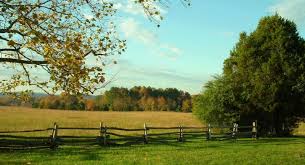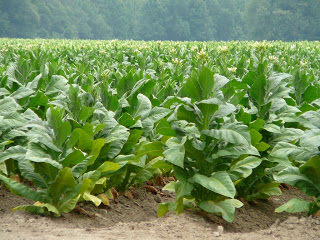Louisa County, Virginia Genealogy, Wills, Estates, Marriages, Court House Records
Louisa County was created in 1742 from Hanover County, Louisa County and was named for Princes Louise of Great Britain, the youngest daughter of King George II and the wife of King Frederick V of Denmark. Patrick Henry was known to have resided in Louisa County for a short time on Roundabout Creek. Thomas Johnson was a representative of Louisa County in the House of Burgesses. Patrick Henry established himself as an eloquent lawyer and won his first election in 1765 and represented Louisa County.

Digital Images of Wills 1745 to 1766
- Belscher, Patrick
- Buckner, Philip
- Clark, Christopher
- Cosby, John
- Fleming, Robert
- Harris, Benjamin
- Johnson, John
- Kimbro, William
- Lea, Francis
- Mackalester, William
- Meriwether, Francis
- Moorman, Elizabeth
- Sumter, William
- Terrill, Richard
- Waddy, Samuel
- Woodall, James
- Yancy, Archelaus
Digital Images of Wills 1767 to 1783
- Anderson, David
- Anderson, Pouncey
- Arnett, James
- Barrett, Charles
- Belscher, Judy
- Bibb, Benjamin Sr.
- Bourn, William
- Bunch, Samuel
- Byars, John
- Carr, John
- Carr, John (2)
- Carr, Samuel
- Christmass, John
- Chiles, John
- Clark, Francis
- Clark, Joseph
- Cory
- Edward
- Cosby, David
- Davis, John
- Dickenson, Charles
- East, Joseph
- Fernham, Robert
- Garland, Nathaniel
- Garrett, William
- Gooch, William
- Glynn, Jeremiah
- Hall, John
- Hall, John
- Henderson, Joseph
- Henson, Richard
- Hester, Robert
- Hunter, Andrew
- Jackson,
- William
- Jones, Richard
- Jones, Richard (2)
- Jordan, Francis
- Kingfield, Robert
- Laurance, Elizabeth
- Laurance, Henry
- Lea, Ann
- Lipscomb, Thomas
- Lowry, William
- McCullock, Elizabeth
- Moore, John
- Parish, Jolley
- Paulet, Thomas
- Pettus,
- John
Poindexter, - Christian
Smith
Marriages
- 1757 to 1856
- 1772-1847
Images of Louisa County Deeds
- 1759 to 1765
- 1764 to 1766
Traced genealogies and family histories of Louisa County available to Members !
| Venable |
How Reliable are Memories of Things Past?
The genealogist know all about memory, especially from interviewing relatives. Sometimes the memory of an event is actually better than the event itself. That is because as time passes and we have the privilege of embellishing upon it in a happier way it becomes more elusive. That is one of the reasons that people do not have perfect recall. Can you remember the date of your grandmother’s death? Or Mother? Since birth, we are processing family information into our memory banks, yet recalling it seems to fade into oblivion. We are more accurate in our recall effort shortly after the event occurred. As time passes, we lose credibility. In the same respect, writing about the historical past is not “second-hand”, however, more like “gossip!” If we were not there (at the time), how can our version be wholly accurate? How do we know if Thomas Jefferson slept with slaves? Did we see it? Is there a substantial record which proves it? If we were not there, we cannot draw conclusions. The quest of the historian, then, is to take his date from facts. That is, old written documents. Another imposition has been taken with Christopher Columbus. The story is that he imposed himself upon island people. Yet, the only first-hand information comes from the explorer himself, who “kept a log” of his travels. This log, now translated, written in his own hand-writing, describes a deeply religious Catholic who believed that he was on a mission for God. And then today we have women claiming that a politician “improperly touched them ” 40 years ago! Since, the first complainer has broken down in tears, claiming that she does not remember the details of what happened. Thus, should we shuffle aside our interviews with relatives, or compare their memories with actual records?


Solving Genealogies by Reading the Old Wills
Remember the days when we climbed on ladders to shuffle down dusty books all because it might help with finding ancestors? Or, the census microfilm which contained no indexes? And how tedious the search through dozens of census records to try and locate the family or just to find a clue? In those days, we examined the records of the county “thought” to be the residence, then circled the wagon in surrounding counties. For some reason, family history books rarely contained an index. Finally, county records began to be extracted and published. But the problem here is that one really needs to read the original document (rather than an abstract) because it contains so many little details helpful in discovering more clues. Yet few originals recorded by the clerks survived. Genealogical Societies have made good effort to restore the torn and smudged documents, however, because of this and colonial-style writing, they are not much help. However, one should not overlook this aspect of research. Instead, learning Latin phrases and colonial hand-writing will serve well to produce results. Like going to school all over again, we can learn the beautiful colonial script! Virginia Pioneers has done its best to acquire actual images of most of the old Virginia Wills, Estates, Inventories, Annual Returns, etc., which may be printed out or downloaded for later study.
Did you Find the Genealogy Clues Along the Way?
Nowadays, scanning census records are basic to all genealogical research. Of course, that was not the case in past days. Genealogists stuggled to locate information in unindexed books (yes, books!) and census records. I performed my census research, page by page, county by county. It was the worst sort of tedium. Details lead us to further clues. When examining census records, it is important to note the State of birth for the parents as well as the children. Later on, the 1880 census reveals how many years the couple were married, how many children were born an the number of surviving children. The places of birth represent the migratory trail and his last known date (of residence) in a specific place. Do these years sound familiar? How do they match up to land grants, land lotteries and Indian removals? If the dates are close to the drawing of land lotteries, search the land lottery books. Were the Alabama and Mississippi births after 1833? If so, they probably took the conventional trail down through Virginia into the Caroliins, to Georgia, then West into Chambers County, Alabama and finally to Mississippi and Texas. Did any of the daughters disappear from one census record to the next? Each step which the parents took has to be examined to establish a chart of the migratory trail. Do not overlook deeds and tax digests. Deeds provide land locations which are needed to search cemeteries in the area while tax digests reveal the location of other parcels of land which may have been land grants or drawn in land lotteries.
During the 17th, 18th and 19th centuries, tobacco was the big cash crop in Virginia. But as tobacco wore out the land, people moved on in seach of rich soil.
Miscellaneous
- Sims, William-Last Will and Testament
